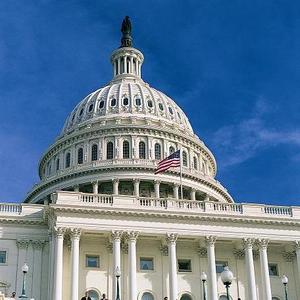Bipartisan group of 36 US senators calls for biodiesel growth

July 22, 2015
BY The National Biodiesel Board
Thirty-six U.S. senators from across the country urged the Obama administration July 20 to strengthen biodiesel volumes in a pending renewable fuel standard (RFS) proposal from the EPA.
“While the proposal is a positive step for biodiesel, we remain concerned that the proposed biodiesel volumes for 2016 and 2017 fail to adequately recognize the domestic biodiesel industry’s production capacity and its ability to increase production,” the senators wrote in a letter to EPA Administrator Gina McCarthy and other administration officials. “Biodiesel is the first EPA-designated advanced biofuel under the RFS to reach commercial-scale production nationwide. It is exceeding the goals that Congress envisioned when it created the RFS with bipartisan support in 2005, while creating jobs, generating tax revenues, reducing pollution and improving energy security. We urge you to support continued growth in the domestic biodiesel industry by making reasonable and sustainable increases in the biodiesel volumes for 2016 and 2017 in the final rule.”
Sens. Chuck Grassley, R-Iowa, Patty Murray, D-Washington, Roy Blunt, R-Missouri, and Heidi Heitkamp, D-North Dakota, led the letter, which was signed by Democrats and Republicans from 24 states.
“We want to thank Sens. Grassley, Murray, Blunt and Heitkamp for their leadership on this effort, as well as all of the senators who supported it,” said Anne Steckel, vice president of federal affairs for the National Biodiesel Board. “It’s not every day that you have Republicans and Democrats from such a diverse group of states uniting around an issue like this. We hope the EPA and the White House will listen and improve this proposal before it is finalized later this year.”
Made from a diverse mix of resources such as recycled cooking oil, soybean oil and animal fats, biodiesel is a renewable, clean-burning diesel replacement used in existing diesel engines without modification. It is the first and only commercial-scale fuel produced across the U.S. to meet the EPA’s definition as an advanced biofuel, meaning the EPA has determined that it reduces greenhouse gas emissions by more than 50 percent when compared with petroleum diesel.
Biodiesel falls under the biomass-based diesel category of the RFS, which is a subset of the overall advanced biofuels category. The EPA proposal, which is slated to be finalized in November, would gradually raise biodiesel volumes by about 100 million gallons per year to a standard of 1.9 billion gallons in 2017. The overall advanced biofuel standard would rise to 3.4 billion gallons in 2016.
NBB had requested more aggressive growth to a biodiesel standard of 2.7 billion gallons by 2017, along with additional growth in the overall advanced biofuel category.
Biodiesel is produced in nearly every state in the country and is supporting more than 62,000 jobs. NBB is the U.S. biodiesel trade association. Americans used about 1.8 billion gallons of biodiesel in each of the past two years.
Advertisement
Advertisement
Advertisement
Advertisement
Related Stories
Sen. Chuck Grassley, R-Iowa, on July 31 pressed Derek Theurer, President Donald Trump’s nominee to serve as under secretary of the U.S. Department of Treasury, on the expected timeline for the release of 45Z guidance.
The European Commission on July 28 approved a €36 million ($41.07 million) Danish state aid scheme designed to encourage airlines operating in Denmark to use sustainable aviation fuel (SAF) on domestic routes.
The abrupt closure announcement by Biox Corp. is the latest example of a failure to secure Canada's domestic energy supply, says Unifor. The Canadian energy union is advocating for simply regulatory changes that could help restart the facility.
The U.S. EPA on July 29 released a proposed rule to repeal the agency’s 2009 Endangerment Finding, which forms the legal basis for the agency’s GHG regulations. The proposal also aims to repeal all GHG regulations for motor vehicles and engines.
While final IRS guidance is still pending, the foundation of the 45Z program is well defined. Clean fuel producers should no longer be waiting; they can now move forward with critical planning and preparation, according to EcoEngineers.
Upcoming Events










